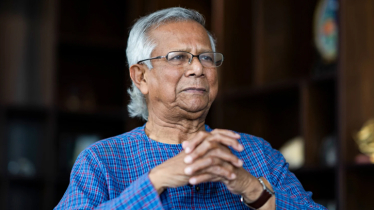
Photo : Collected
Professor Dr ASM Maksud Kamal, the Vice-Chancellor of Dhaka University, has recently highlighted the inadequacies in the university’s research infrastructure. He emphasised on the need for a conducive environment for research – especially in the science and engineering disciplines. Dr. Kamal also pointed out deficiencies in incorporating modern technology into business education and social science disciplines. The campus itself poses obstacles to research friendliness, including issues like noise pollution, air pollution, cultural noise, an open environment, and security concerns.
The insights from the guardian of this highest educational institution shed light on the true state of research within the country’s education system. Dr. Kamal underscored the necessity for improving the socio-economic conditions of the population through an enhanced educational system grounded in research. He expressed that empowering the new generation with proficiency in modern science and technology could eradicate issues such as poverty, illiteracy, corruption, communalism, and backward culture, ultimately leading to the creation of a developed and prosperous Bangladesh. To achieve this, he advocated for the development of a research-driven, demand-based education system.
In the contemporary world, the significance of computers and information technology in the modern education system cannot be overstated. Factors like dedicated teachers, up-to-date curricula, effective teaching methods, and appropriate assessment play pivotal roles in human resource development. While these aspects receive some attention in the current education system, there is a notable absence of a research culture in education in the country. The realization that education itself can be a subject of research is almost unimaginable.
A recent report quoting Scopus revealed a contrast in research output among neighboring countries in 2021. Indian researchers published 222,849 research papers, Pakistani researchers published 35,663, while Bangladeshi researchers contributed only 11,477 research papers. This statistic, though disheartening, serves as a wakeup call. However, the absence of a mandatory publication requirement for professors in the human resource policies of the country’s universities contributes to a lack of emphasis on research by many professors.
The lumping together of basic research and ineffective qualitative research may discourage young researchers from pursuing fundamental research. This issue demands careful consideration and corrective measures. Despite the historical practice of appointing talented students as teachers in universities, their contribution to research publication has been notably disappointing. The root cause, as identified by Dr. Kamal, lies not only in mismanagement of the recruitment policy but also in a significant loophole in the unplanned human resource policy. Lastly, we suggest for the establishment of a modern, competitive, and quality education system with a pronounced emphasis on research.
Messenger/Sun Yath








